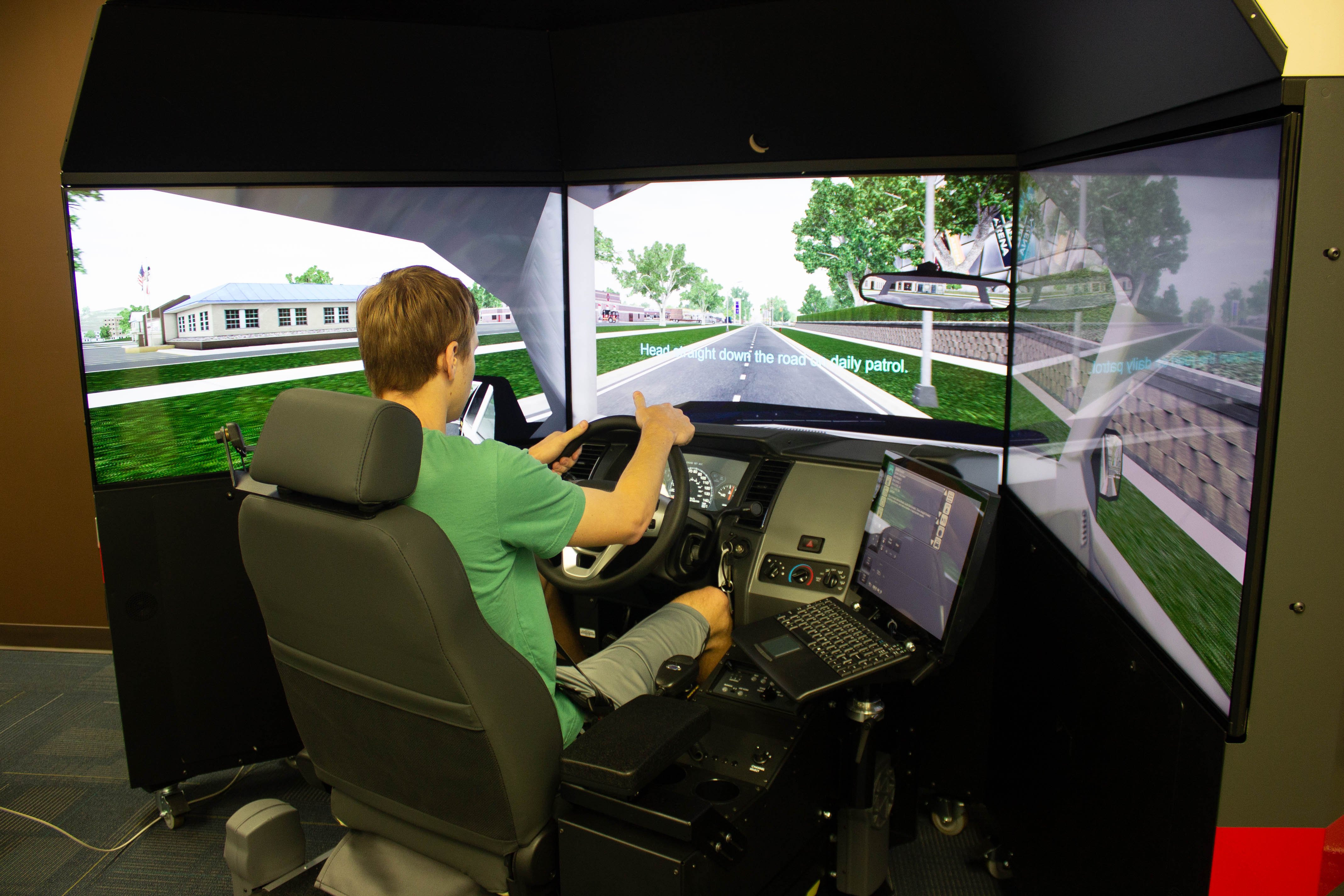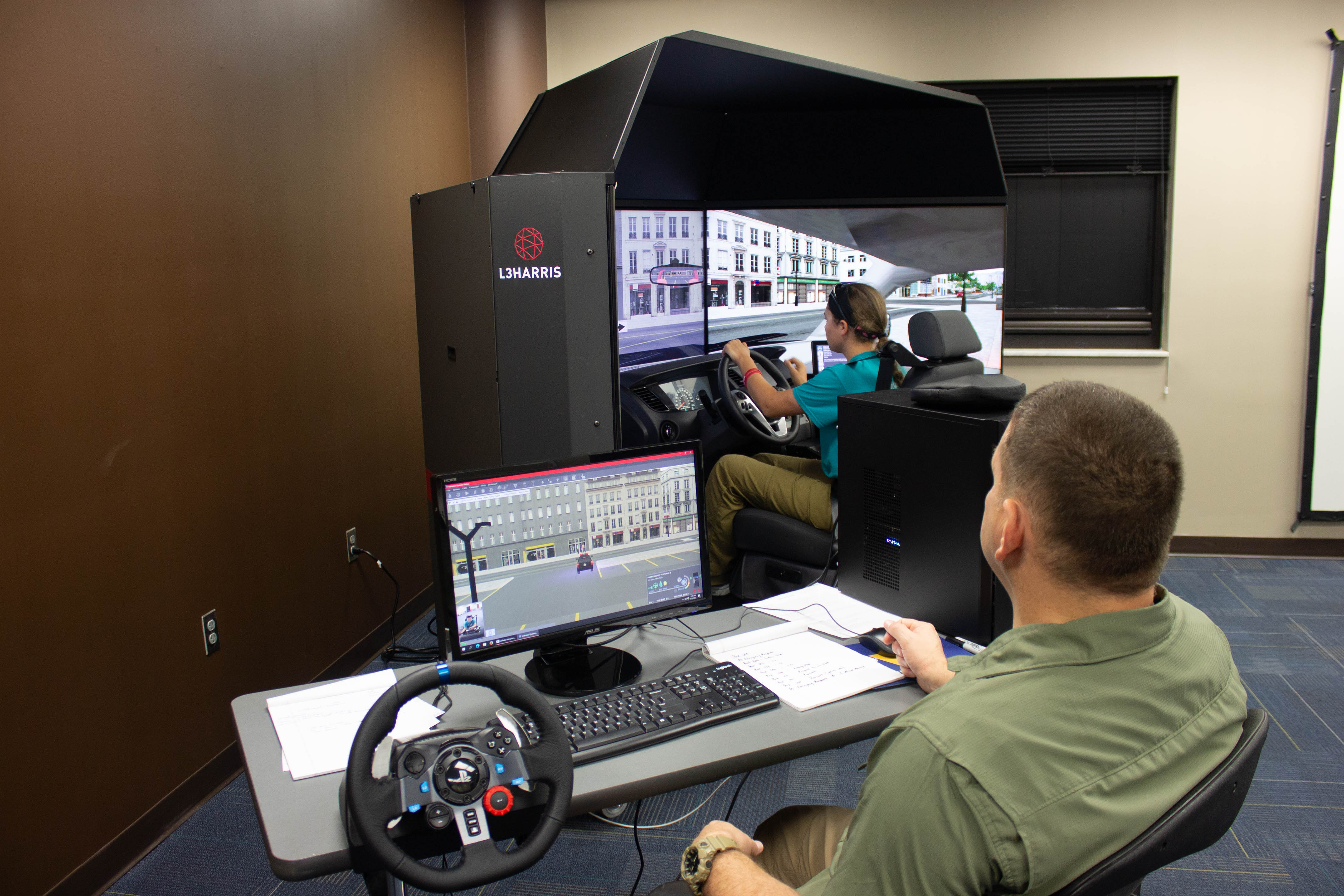Driving simulator helps VU public safety majors gain real-world experience
Driving simulator helps VU public safety majors gain real-world experience

September 29, 2022
By University Relations Student Journalist Olivia Tucker
VINCENNES, Ind. - Vincennes University is known for preparing students to enter the workforce from the moment they graduate and are ready to go into their chosen field of work. Before they ever set foot outside the classroom, VU students in Conservation Law Enforcement, Law Enforcement, and Homeland Security classes are learning how to safely and effectively operate an emergency vehicle with the help of a state-of-the-art simulator.
They are gaining real-world experience while behind the virtual wheel of a new $142,000 law enforcement driving simulator. The students get training and experience what it is like to drive an emergency vehicle without actually driving a vehicle.
L3 Harris Technologies, a well-known defense contractor, built the simulator.
The simulator allows students to experience driving by telling them a crime may have been committed and directing them where to go. It also records each student, so professors can help the student learn from what the student is doing while operating the simulator. Professors can select the exact scenarios the students will face and control the vehicle, which requires students to think quickly about what they need to do.
VU Conservation Law Enforcement Department Chair Eric Doane, who served as an Indiana Conservation Officer for 29 years, said the simulator introduces students to scenarios they may encounter well before they go to the police academy. It also better prepares them for the driving they will have to do for their careers.
“The driving simulator allows a student to experience EVO (emergency vehicle operations) in a controlled setting,” Doane said. “Just like in a real patrol vehicle, students are required to perform multiple tasks such as operating a police radio and emergency lights while at the same time safely pursuing a suspect vehicle or responding to an emergency situation. The ability to change the weather, terrain, and patrol area, as well as the type of emergency vehicle makes the simulator a valuable asset for both rural and urban law enforcement instruction.”
 The classes that are using the simulator are Homeland Security and Public Safety (HSPS) 100 Theory and Practical Applications in Homeland Security and Public Safety, Law Enforcement 202 Advanced Police Operations, and Law Enforcement 250 Conservation Enforcement II.
The classes that are using the simulator are Homeland Security and Public Safety (HSPS) 100 Theory and Practical Applications in Homeland Security and Public Safety, Law Enforcement 202 Advanced Police Operations, and Law Enforcement 250 Conservation Enforcement II.
Delaney Holliday ‘23 is a Homeland Security and Conservation Law Enforcement major from Carmel, Indiana.
“(The simulator) is a good, practical application to learn in class,” Holliday said.
She added that the simulator is a combination of everything for students to learn, including responding to calls while driving the simulator and turning on the lights and sirens similar to an actual police vehicle.
“College is trying to prepare us for the real world, and the simulator gives us the real-world experience,” said Homeland Security major Ivan Daily ‘24 of Lafayette, Indiana.
###

